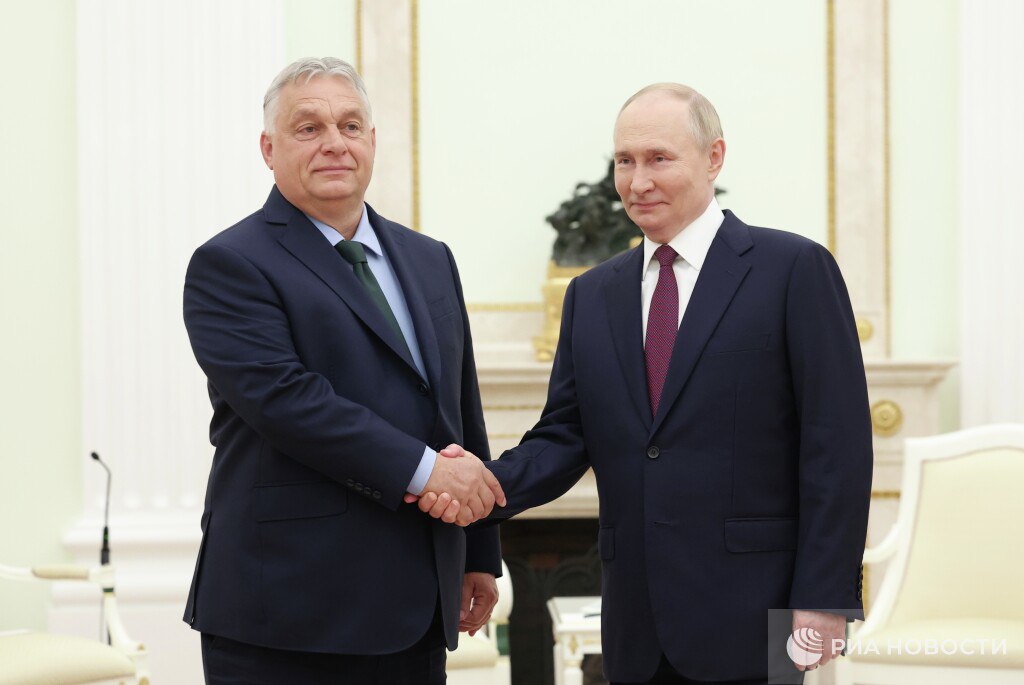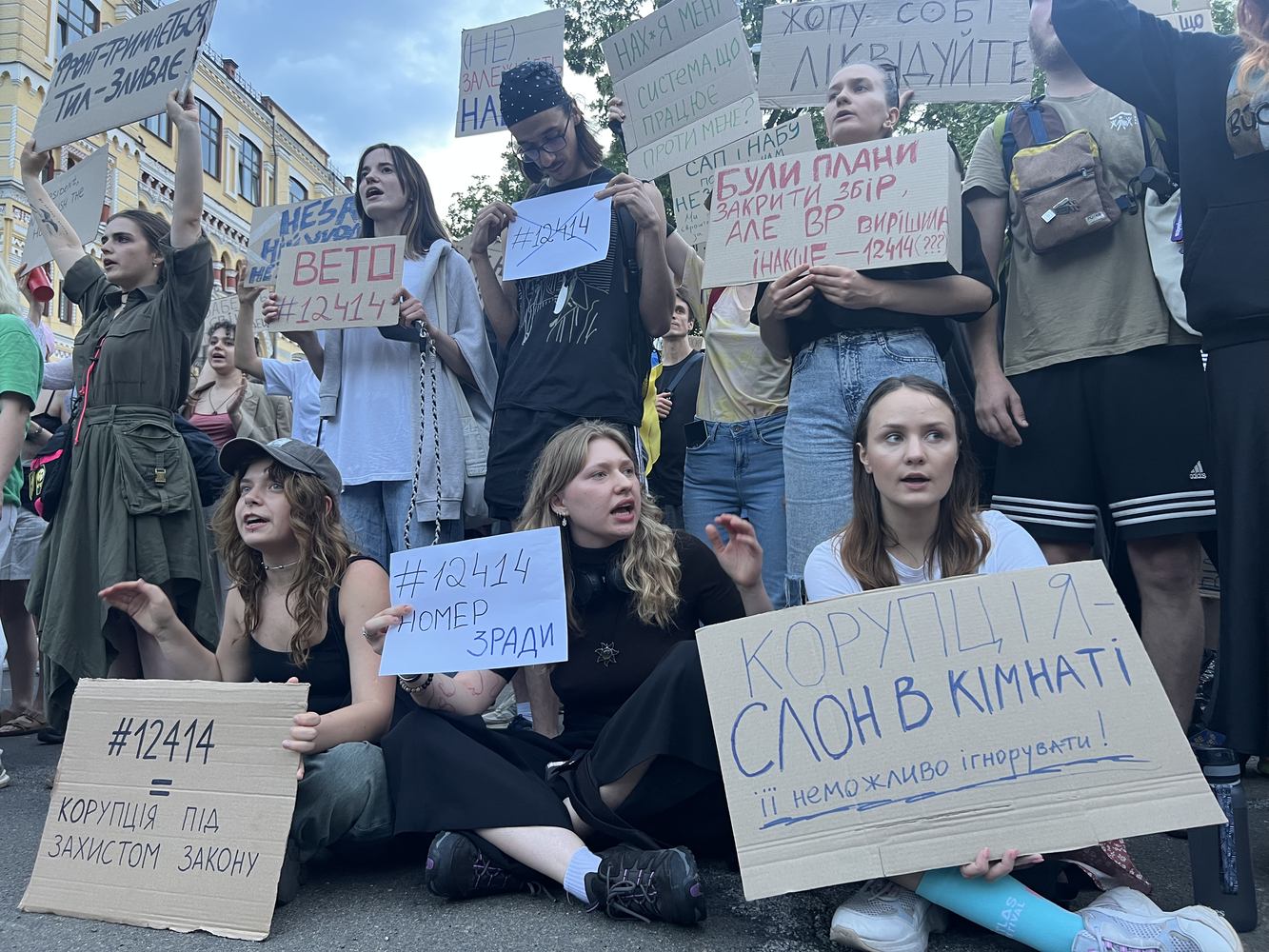President Volodymyr Zelenskyy signed a law Tuesday dismantling Ukraine’s anti-corruption agencies.
The timing was disastrous: Brussels had secretly scheduled 18 July to open Ukraine’s first EU negotiating cluster, bypassing Hungary entirely, but abandoned the plan after Ukraine’s anti-corruption crackdown, according to European Pravda sources within EU institutions.
Zelenskyy knew about the plan. He’d been personally involved in discussions with Danish officials and EU leadership since late June, European Pravda reported, citing unnamed European officials. But instead of supporting this diplomatic breakthrough, Ukraine systematically undermined its reform credentials by rejecting the Bureau of Economic Security selection results, conducting searches of activist Vitalii Shabunin’s home, and finally signing the law gutting NABU and SAPO independence.
Brussels was ready to break its own rules for Ukraine

The Danish EU presidency and European Commission had crafted something unprecedented: legal measures to sideline Hungarian PM Viktor Orbán, who had systematically blocked Ukraine’s accession, completely.
Bloomberg reported in May that member states pushed the Commission to explore options for opening Ukraine’s first negotiating chapter despite Hungarian objections.
The breakthrough insight: while unanimity is required to start and complete EU accession negotiations, sources told Bloomberg it’s not a legal requirement for opening individual clusters. The Commission informed member states that it intended to send the European Council a first report on starting cluster discussions with Ukraine and Moldova.
EU lawyers acknowledged the plan was “legally flawed” but calculated Hungary would need three years to challenge it in court.
After years of Hungarian obstruction, 26 member states were willing to risk institutional precedent.
The “parallel negotiations” mechanism
The mechanism was elegant: conduct “parallel negotiations” where 26 EU states would negotiate with Ukraine while Moldova received formal recognition. When Moldova opened negotiating clusters, the 26 states would issue statements confirming Ukraine had completed the same work and that only Hungary’s veto prevented legal advancement.
- Inter-Governmental Conferences: The Danish presidency was prepared to convene working bodies pivotal to enlargement that don’t require Hungarian consent
- Political weight: Though legally non-binding for Ukraine, these would carry enormous political significance
- Synchronized progress: Ukraine’s advancement would be coordinated with Moldova’s formal recognition
The Danish presidency, which described enlargement as a “geopolitical necessity,” had exhausted diplomatic options with Hungary.
Hungary systematic obstruction
Orbán had forced Brussels into this position through relentless obstruction. After blocking progress during Hungary’s 2024 EU presidency, he staged a “national consultation” where 95% of 2.3 million participants opposed Ukraine membership—though an opposition poll found 58% Hungarian support for Ukraine’s EU bid.
Zelenskyy met with Danish Prime Minister Mette Frederiksen during the NATO summit in The Hague. He flew to Denmark on 3 July for private negotiations. Final details were hammered out in Rome on 10 July. Everything was set for the 18 July ceremony in Brussels.
European officials were prepared to risk institutional precedent. Ukraine chose that exact moment to implode its reform credentials.

How Ukraine sabotaged itself
The self-sabotage unfolded in a devastating sequence:
- 9 July: The Ukrainian government rejected the winner of a transparent, EU-supported competition to head the Bureau of Economic Security. The government simply overturned the selection results with no explanation.
- 11 July: Law enforcement raided anti-corruption activist Vitalii Shabunin’s home without a court warrant. They also searched the mother of fallen Hero of Ukraine pilot Andrii “Juice” Pilshchykov simply because Shabunin had briefly stayed there.
- 14 July: Deputy Prime Minister Olha Stefanishyna announced her resignation as Ukraine’s chief EU negotiator—replacing a negotiator at such a sensitive moment gave Brussels another reason to pause.
Denmark quietly abandoned the 18 July proposal. European Pravda sources reported EU officials asking: “WTF? What is going on?”
Brussels draws the line
EU Enlargement Commissioner Marta Kos warned Deputy Prime Minister Taras Kachka that the anti-corruption law would have “serious consequences for the entire negotiation process.” Some member states now believe “it would have been better not to rush into opening the first cluster.”
European Commission President Ursula von der Leyen called Zelenskyy directly to express “strong concerns.” Brussels views this as democratic backsliding comparable to Georgia’s retreat.
Economic consequences mounting
The OECD warned that undermining anti-corruption agencies will hurt:
- Defense investments in Ukraine
- Reconstruction funding from international partners
- Future borrowing capacity as creditors reassess risk
But European officials doubt the Presidential Office takes these warnings seriously—they are accustomed to Brussels making threats without decisive action.
Putin wins without trying
Anti-corruption architect Daria Kaleniuk pointed out the bitter irony: Zelenskyy “just gave Putin his best argument.”
Putin’s original justification for war was that Ukraine was “losing sovereignty to foreign partners, establishing anti-corruption institutions with foreign experts.” Ukrainian MPs are now making Putin’s argument for him.
Ukraine will fall behind Moldova in EU accession talks. The “decoupling” Brussels tried to avoid becomes inevitable—not because of Hungarian obstruction, but because of Ukraine own choices. As one European official noted: “Ukraine has done the dirty work instead of Viktor Orbán.”
What the law actually does
The legislation Zelenskyy signed grants the Prosecutor General sweeping authority to:
- Reassign NABU investigations to other agencies
- Issue binding instructions to anti-corruption bodies
- Unilaterally close high-level corruption cases
- Control SAPO operations through mandatory coordination
Transparency International Ukraine called it the dismantling of “prosecutorial independence.”
NABU and SAPO were established in 2015 under Western pressure following the Euromaidan Revolution. Independent anti-corruption institutions were central to EU integration and remain a key condition for visa-free travel, which stays secure despite current developments.The timing was particularly damaging. Just as European officials prepared to risk institutional precedent for Ukraine’s benefit, Kyiv chose to demolish its reform credentials.





